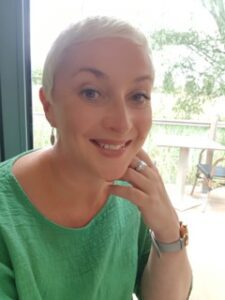Most people are familiar with the term PTSD (Post Traumatic Stress Disorder) and understand it as a condition that emerges as a result of a single traumatic event such as war, a car accident, singular medical crisis, isolated acts of abuse or birth trauma for example, but Complex Post Traumatic Stress Disorder, often referred to as CPTSD or Complex PTSD has gained more attention over the last 30 or so years, as the more intense sibling of PTSD and the way in which clinical trauma and mental health professionals create the distinction between the effects of a singular, isolated traumatic event and the complexity of the emotional, psychological, physiological response to a frequency of trauma that has been enduring and long standing.
Another way to think about that ‘C’ is that it comes from a chronic experience; with C-PTSD we’re usually referring to the fact that the trauma experienced has been repetitive & severe and most typically has happened in childhood.
Where does C-PTSD Come From?
C-PTSD is in response to chronic traumatisation which you are unable to believe or foresee will ever end. The list is not exhaustive in what these experiences are, but typically
- Child abuse – sexual, physical, emotional and psychological
- Child neglect – physical, emotional and psychological
- Long term domestic violence
- Children who have been in homes where domestic violence has been experienced. (Children have only in 2022 been recognised as being victims of domestic violence in their own right).
- Being held in captivity
- Living in crisis conditions
- Living in war zones
- Child and adult human trafficking
- Child exploitation
While there are exceptional circumstances where adults can develop C-PTSD, it’s predominantly seen in those whose trauma occurred in childhood. For people who are older, being at the complete control of another person (often unable to meet their most basic needs without them), coupled with no foreseeable end in sight, can break down the psyche, the sense of self, and affect them on this deeper level. However, children experiencing this are still developing neurologically and just beginning to learn who they are as an individual, making sense of the world around them, and building their first relationships. Severe trauma interrupts the entire course of their psychological, neurological and physiological development.
The trauma to a child that results in C-PTSD and dissociative disorders is often intrinsically linked with a child’s caregiving, emotional bonding and attachment relationship. Completely separate from the traumatic events/experienced themselves
On the surface it may look like PTSD and C-PTSD are similar because they both come from something extremely traumatic, they cause flashbacks, insomnia & nightmares/night terrors and the fact that they can both make you live in fear even when you are safe.
But at the very core of C-PTSD – it’s causes, it’s internal manifestation, the lifelong emotional, psychological, physical & medical effects, and it’s ability to compromise your perception on life, is what makes it dramatically different.
What does C-PTSD Look Like?
 The primary difficulty people have when they are experiencing C-PTSD is emotional regulation, but what does that mean?
The primary difficulty people have when they are experiencing C-PTSD is emotional regulation, but what does that mean?
Complex PTSD impacts significantly on emotions; understanding emotions, expressing emotions, experiencing emotions and for so many this can be as simple as being able to comprehend what they are feeling.
There can be overwhelming unmanageable feelings of sadness, explosive and ‘irrational’ anger outbursts and suicidal thoughts. There can be a feeling of numbness; not being able to regulate emotions to certain situations or people where there is a high emotional experience, and often the emotional reaction to this is disproportionate to the current event/episode.
Re-experiencing emotions originally felt during the traumatic episodes/period is particularly common when there are situations that have ‘activated’ these……more commonly referred to as ‘triggers’….and are an emotional flashback to what was needed at the time of trauma.
The perception of the self is a deep struggle for anyone who is a survivor of complex trauma. The perception of being bad; embodying nothing but shame, helplessness, guilt and being completely different from anyone else is common for all survivors of complex trauma. This skewed perception develops at a time when identity growth was severely disrupted and interrupted by the the traumatic events and the chronic traumatisation. I’ve met many women and children throughout my 23 years in clinical trauma practice who have:
- developed a sense of helplessness because they were let down by so many around them that could have helped or supported them but didn’t, so they feel it must just be them and this leads on to
- feeling responsible for what others have subjected them to and what has happened to them and therefore consider themselves unworthy of compassion, love, kindness & dignity
- consider that their trauma defines who they are as a person, what they do in life and fear that they are a burden, that nothing will ever change for them, and that they are completely different to everyone else around them.
You would be surprised to know that these are women who you would probably look at and think how competent, confident, strong, ‘put together’ and compassionate they are.
Trust coupled with a negative self perception impacts on the persons ability to feel safe in relationships leading to difficulties in relationships; relationship avoidance, ambivalence in relationships , abandoning relationships or developing unhealthy relationships that are based in what they knew of the past. It is even in the not knowing how to be in relationships. Many people with C-PTSD have an outright refusal to trust anyone and not actually know why they ever should. It is one of the greatest challenges for C-PTSD sufferers in developing a psychotherapeutic relationship with me, but when worked through it is also the relationship that can re-establish a sense of what trust is and could be. In many instances people with C-PTSD become overly trusting even when the relationship is dangerous, this usually happens as a result of a diminished internal alarm sensor. There are others who have the need to feel rescued and be taken care of; the fear of being alone and powerless becomes the overriding sensation due to underlying loss and abandonment experienced during the traumatisation.
Disconnecting from thoughts, memories & identity is an often scary reality in Complex PTSD and is a range of symptoms described under a spectrum of dissociation. People who have experienced trauma will often have some degree of dissociation during the event itself or in the following hours, days or weeks but those who have experienced chronic trauma and trauma in childhood can experience dissociative symptoms into adulthood. These range from forgetting traumatic events, reliving traumatic events, recalling traumatic events in a different chronological order, memory gaps, poor memory recall, flashbacks, intrusive images and body memories. The lower end of the spectrum of dissociation is relatively harmless with daydreaming for example, but becomes more intrusive as it moves up the spectrum where people can shift between self (alter) states as in Dissociative Identity Disorder. I cannot stress hard enough that seeking the correct information and clinical expert advice if you are experiencing any of these is crucial and if you are reading this and thinking this is something you are experiencing now, please do contact me directly.
Loss of a system of meanings is one of the most difficult and well observed disruptions that people with C-PTSD face. Meaning making is the process of how we construe, understand, or make sense of life events and the self. Trauma is one of the most injurious events you will face in your life and the chronic traumatising or childhood trauma in C-PTSD affects how you then navigate a life contorted by trauma; losing one’s core beliefs, values, faith & hope in the world and other people. These are unique to each individual based entirely on the individual and the meaning you give to the trauma, the interpretation you have of it’s affects on you and the perception you then have of the world around you, but there are similarities I see in the therapy space; hopelessness and despair, chronic doubt that there isn’t kindness in the world that doesn’t come from a place of selfishness, never finding forgiveness and that you are always going to be hurt because you only came into the world to be hurt. It is the loss of this ‘system of meaning’ in the women I work with that is often the hardest to guide through in therapy because of the meaning, or the outlook on life, that has been contorted by trauma but it is never too late to create a new healthier one i.e. to rewrite the story you tell yourself about what happened.
Symptoms of complex PTSD can vary and change over time.
So it is important to note that people with C-PTSD may also experience symptoms other than the ones I’ve described here.
In my qualified clinical experience as a Trauma Psychotherapist people with PTSD & Complex PTSD may need personalised therapy and treatment. Trauma is unique to each individual, the impact on you is unique to you and therefore your therapy and treatment needs to be equally so. There is no ‘one size fits all’ therapy or trauma informed coaching program for C-PTSD. Your history of trauma needs to be listened to, heard, & understood first and foremost.
Recovery and outlook in C-PTSD
Recovery takes time and only happens in a safe and trusting relationship with a qualified and experienced trauma therapist. The first goal of that therapeutic relationship is to develop or recapture feelings of trust in others and the world around you. This takes times with each and every woman (and child) that has engaged in their recovery journey with me.
With the right therapy, lifestyle changes, and in some cases medication, there is recovery from Complex Trauma and a way of living life as the confident, compassionate, vibrant, energetic person you want to be and I know you can be.

Meet Helen:
As a Trauma Psychotherapist I have been guiding women and children on their recovery and healing journey from Childhood, Complex Trauma & C-PTSD for 23 years. Along with my clinically qualified Psychotherapy expertise, I have a range of clinical expertise & training in the Neuroscience of Childhood Trauma, Attachment therapy, Internal Family Systems, Somatic Experiencing, EMDR, CBT & Solution Focused Therapy, Sexual Abuse Recovery, Inner Child Healing, Bio-Energetic Therapy, Narrative Story Stem Assessment
Sign up for my Newsletter in which I share information, education, advice and other interesting facts and sources of information relating to trauma, complex PTSD, recovery and healing.
You can also follow me on Facebook or Instagram
I’d love to know what information has really struck you in this article so please feel free to send me a note on Facebook or Instagram or if you sign up to my newsletter you can always hit ‘reply’.
Helen
NB: The Diagnostic and Statistical Manual of Mental Disorders, 5th Edition (DSM-5), a handbook often used by psychiatrists & psychologists, does not currently acknowledge C-PTSD as a separate conditions/diagnosis. However, the World Health Organisation’s International Classification of Diseases, 11th Revision (ICD-11) does acknowledge the condition and I along with many of my colleagues are distinguishing between PTSD and C-PTSD despite the lack of guidance from DSM-5 as there is a significant amount of research which supports the validity of Complex PTSD.

